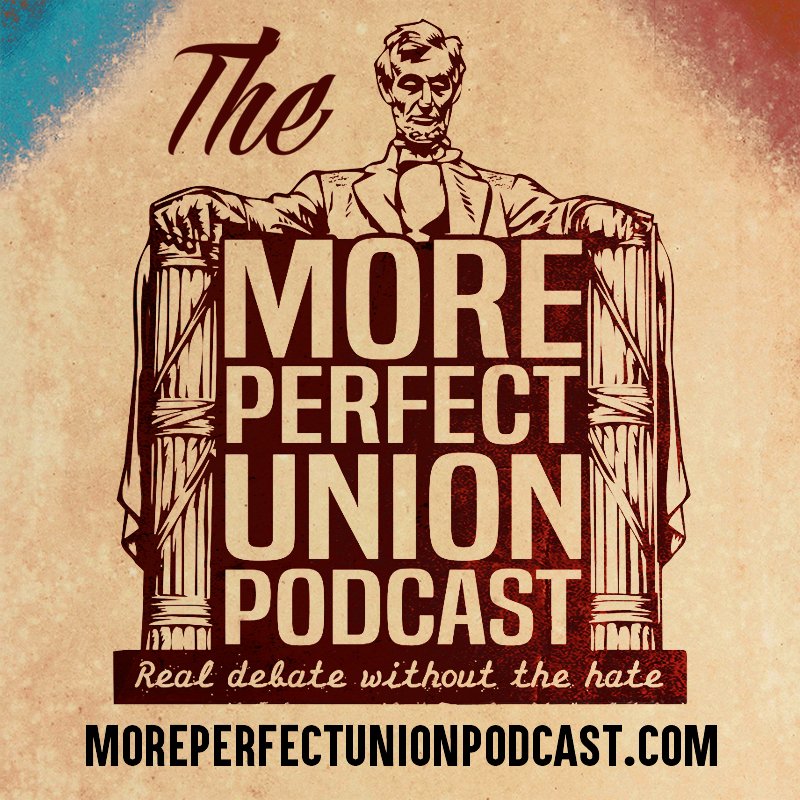

Trying to Square the Abortion Circle (UPDATED)

Trying to Square the Abortion Circle (UPDATED)
by D.J. McGuire
Updated since the retirement of Justice Kennedy.
Few issues in American politics are as divisive as abortion, largely because the two sides are driven by dramatically opposing points of view, namely…
The pre-born child is a human being deserving of rights, especially the right to live.
…and…
A woman’s right to personal autonomy must be respected.
For over forty-five years – ever since the Supreme Court determined the latter was important enough to prevent legislatures from acting only on the former – the arguments have centered on which is the more important “right” – and the argument has been winner-take-all. Any movement toward pre-born protection has been challenged as a step toward eliminate a woman’s right to choose – and indeed, just about every supporter of a “pro-life” position holds that said “right” is either a judicial or moral fabrication. I should know: I still consider myself pro-life, and I spent a quarter-century insisting that the “right to choose” was either fictional or less important than the right to life. My opponents in that long-running debate always held to the reverse. Indeed, it seemed that one could not hold both truths simultaneously (UPDATE: I would humbly submit that even in the event of a change in attitude from a post-Kennedy Supreme Court, the arguments will largely remain the same as the issue moves to the political realm). One had to trump the other, period .
I don’t hold to that false choice anymore. I realized in examining local property law (particularly easements and eminent domain), that governments and property owners don’t hold to this mutual exclusivity of views, and I don’t think we should on abortion either.
Why Pro-Life Efforts Usually Fail
From a national perspective, Americans have long been indecisive on abortion. Usually “pro-choice” holds a plurality view, but not the majority view; on occasion, “pro-life” takes the plurality, but not the majority. That said, as the status quo is largely in favor of “pro-choice,” it has been “pro-lifers” who have been pushing for changes – usually without success.
Looking beyond the constitutional issues, the political reality makes it difficult for pro-lifers. In economic terms, pro-life policies have diffuse and indirect benefits to Americans (or at least those who can speak for themselves), but the cost is concentrated among women of child-bearing age. That is not an equitable distribution of cost, and those on whom that burden falls have rightly been frustrated by it. For pro-life policies to win over Americans who currently disagree – or even those unsure of where their views land – the cost must be fairly distributed. The pro-life movement has never addressed this, and that has fueled their – our – political failure.
Why recognizing women’s rights is not a roadblock
Of course, most of my fellow pro-lifers would respond by noting the judicial branch’s assertion that a woman’s “right to privacy” includes abortion rights. They will insist that unless that is addressed, there is little that can be accomplished.
I no longer agree. This assertion is driven by the assumption that a constitutional right is absolute and can never be infringed. Any property owner near a road, or powerlines, will tell you otherwise. Local governments place easements on land for power and utilities repeatedly; local and state governments similarly take property for road construction. Yet no one insists that the Fifth and Fourteenth Amendments make property rights inviolable. Moreover, no government in America assumes they can simply take or use private property without compensation. Even the Kelo decision – which in my view mistakenly gave government the authority to use eminent domain to give land to a private entity – did not allow governments to avoid compensating affected property owners.
Acknowledging Infringement of Rights and How to Compensate for Them
Property rights were one of the first causes for which the Revolution was fought, and they were a large part of what drove the Framers of 1787 to replace the Articles of Confederation with the Constitution. Yet they are repeatedly infringed for the greater good – so long as property owners are compensated for the infringement.
There is clearly no property as personal as one’s own person. Yet millions of American women know that pro-lifers would infringe upon their rights with no compensation. That many of those women are themselves pro-life doesn’t make this mistake any less egregious politically. Pro-lifers should instead acknowledge not just that they are proposing an infringement on women’s rights – but also that women should be compensated for that infringement.
There can – and will – be arguments about how that compensation should be measured, but in my opinion, the easement/eminent domain examples should be followed. In these cases, governments are supposed to examine the loss of income and value to the landowner. and compensate accordingly. If I may be flippant for sound bite purposes, what works for farmland should work for fallopian tubes.
So what would be included in compensation for a women whose rights have been infringed by pre-born legal protection? I have four categories in mind.
Child-rearing cost: This is the most obvious, and in theory, it’s covered by child support for single parents. Whether or not the current child-support regimes are sufficient is not something I wish to argue here. Moreover, the government itself needs to recognize that even married or cohabitating couples will face these costs – which pre-born protection would make unavoidable (and thus, in my view, worthy of compensation).
Pre-natal cost: There was a time where I thought this could be solved by simply moving the start date of child support to a point before birth (be it conception, fetal viability, or whatever point a legislature decides life begins). As one might infer from the last paragraph, I’m more open to direct government compensation in this area too.
Lost wages: In most areas of employment, late pregnancy and early childhood mean time away from work for the mother. At present, paid family leave is largely seen as a policy to help families. However, it can be more than that – -namely, a recognition of the opportunity cost of bearing and raising a child. This is especially true if said cost is effectively mandated by pre-born protection.
ADDED in UPDATE: Cost and lost income due to health impacts: Thanks to fellow MPUer Rebekah Kushmider for setting me straight on this. Pregnancy takes its toll on a women’s health – physical and mental; that toll must also be addressed and redressed.
Lost income due to career impact: This is the opportunity cost usually discussed the least, and yet it could be the greatest cost. Given the current cultural norms, the decision to bear and raise a child can have serious impact on a women’s career path (and her earnings). If pre-born protection becomes law, this cost is actually the closest to the loss of income and value a property owner suffers from an easement or from eminent domain. Any compensation plan that doesn’t take this into account does not properly compensate women for the injury to their rights.
Implications
Of course, this policy would have a cost to the government implementing it, but said cost involves what I would consider a vital function of government: redressing injuries to rights. Moreover, unlike previous pro-life policies without compensation, this policy acknowledges and respects a woman’s personal property rights. Finally, this policy would make visible the externalities inherent in our current cultural norms regarding child rearing – or, if I may again be flippant, it’s places a price tag on the patriarchy. Governments that wish to protect pre-born life and avoid the expenditure can then focus on reducing (or, I hope, eliminating) the patriarchal norms that have made child bearing and child rearing potential career and financial hazards.
As I am not a lawyer, I am unsure as to whether or not this will be enough to allow pre-born protection to pass current constitutional muster (although I am optimistic). I am certain, however, that future courts would be more respectful of a policy that acknowledges women’s rights as something to be compensated, rather than something to be overruled. Thus, even in the post-Roe world (or post-Casey world, if one prefers), this could come down to a minor judicial change or clarification. Again, however, I am no lawyer, so don’t take my word for it.
I would expect that some would read this and ask if all of this can be done without protecting pre-born children in law. Personally, I am certainly willing to try. In the end, this is about changing the incentives that still lead to hundreds of thousands of pre-born children dying in America every year. Even changing the law itself is about changing incentives (as nearly all pro-lifers would legally punish only the performer of an abortion, rather than the women themselves). Whether or not the compensation effort without a change in the law is incentive enough remains to be seen, but I’m willing to see it if a change in the law remains politically impossible.
Conclusion
As the title of this post makes clear, I am trying to find a solution where none has seemed at hand for decades. I am doing this because I still want these children saved, but I also recognize that neither of the two fundamental tenets cited in the post’s beginning will trump the other in 21st Century America – nor should they. Moreover, a society that is serious about saving these children will not be – and must not be – shortsighted enough to let nearly half of their population experience no cost for the effort.
Women have the right to control their own bodies, no less than a landowner or a homeowner has a right to their property (UPDATE: I don’t believe the aforementioned needs a court case to be valid). Those of us who wish to infringe on that right must recognize that proper and full compensation for said infringement is necessary. Otherwise, Americans will continue to talk past each other, while hundreds of thousands of children die because those who insist life is precious in words will act as if life is cheap.
D.J. McGuire – a self-described “progressive conservative” – has been part of the More Perfect Union Podcast since 2015.







This is such an upper-middle class perspective–the solution to abortion is compensating women for lost economic opportunity. You realize that abortion is disproportionately accessed by poor women and women of color, right? If you really want to reduce abortion, invest in free birth control and comprehensive sex ed instead. That aside, your reference to eminent domain law is exceedingly naive. Eminent domain is a purely commercial transaction that is governed by known, well-established factors. Having a child involves intangibles, principally parental love (or lack of it) and wear and tear on the mind and body. You can’t put a price on that, and by focusing on wages, pre-natal medical care, etc., you ignore the emotional costs of children, which can’t be compensated. Women are more than mere vessels, and the cost of child-bearing goes well beyond economic loss. And the reasons women exercise their constitution right to terminate a pregnancy are as varied as as the imagination can allow. Rape. Abusive relationships. Single motherhood. Youth. A seriously ill fetus. Shame. And yes, the time is wrong. It’s just not a financial transaction. It’s a human one.
But here’s they core issue that this doesn’t address: consent.
That is a workable consideration for a woman who is considering abortion due to financial concerns about raising a child and would choose otherwise were money not at issue. She would consent to this.
But for a woman who does not want to be pregnant? What of her?
I am a woman of childbearing age and I have completed my family. There is no amount of money that will change my mind. I do not consent to 40 week of the physical reality of pregnancy. I do not consent to a third c-section. I do not consent to surgical recovery. I do not consent to a month or more or vaginal bleeding after delivery. I do not consent to lactation. I do not consent to losing a third of my hair and regrowing it for a year after birth. I consent to none of that.
Can you say that I must take that compensation endure pregnant, birth, and the recovery from birth against my will?
Respectfully, I don’t think you’re right that this doesn’t address consent. The constitution doesn’t prohibit people from willingly choosing to relinquish any of their rights. So any time we talk about restricting/curtailing/eliminating someone’s rights, we’re fundamentally talking about forcing things upon those who don’t consent.
To extend D.J.’s parallel, eminent domain would not exist if individuals gave land to the government of their own free will. It exists exclusively because projects for the greater good (i.e., public use) were being held up by people who would refuse to give consent for their property to be given to the government (for compensation or otherwise). So provisions were provided to force them to relinquish their possessions against their consent, and be given compensation.
What the the article really doesn’t address is the fact that it ignores all the *impacts* to women that you outlined, and the fact that they aren’t easily quantifiable from a repayment standpoint, and simply are more important than a “loss of property” or “loss of economic status.” Until we actually deal with the *human* factor of the situation, the parties involved won’t come to any agreement. Compensation for economic/job/fiscal impact simply doesn’t cut it.
You had me wholeheartedly agreeing with you when you said, “That is not an equitable distribution of cost, and those on whom that burden falls have rightly been frustrated by it.” I have had mental images of someone saying, “My religion tells me that abortion is not acceptable. I will force my ideals on you by preventing you from having any choice. It is an easy decision for me because it does not affect my life.”
You lost me when you equate personal liberties with property rights. Are you comfortable with the majority deciding that slavery is OK, provided the slaves are given just compensation (food and shelter come to mind)? If not, where does one draw the line? I think you are trying too hard to justify your no choice stance.
At least D.J. McGuire has tried to address this issue with something different than abortion can not be allowed (sometimes under any circumstances) vs abortion should be allowed if a woman chooses.
There are lots of things he has not considered – like, under this type of policy, all women can claim lost opportunity costs because they have given birth to a child. And maybe this is a good thing. As a society, maybe we should support all families with children. Maybe, as a society, we need to fund a Planned Parenthood type of organization to teach all people about birth control and provide a free way to avoid unwanted pregnancies. Maybe, as a society, we need to provide all the resources required to care for children with disabilities.
Never-the-less, it is great to start a different type of discussion. I have often wondered why ardent pro-lifers have not thought of putting their money where their mouth is. If they want to encourage life, they should appropriate funds so that the burden is not solely carried be the parents.
Oh yeah, where do pro-lifers stand on the death penalty? Where do they stand with refusing immigrants asylum when they will likely be killed if sent back to their home country?